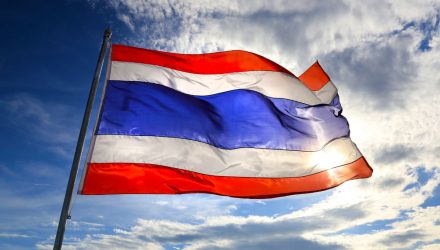10 of Thailand’s largest and most successful companies, along with the state-owned electricity generator, have created their own voluntary emissions program that deals in offsets, one they hope to build upon to eventually create a robust carbon-trading market, reports Bloomberg.
These companies have built a framework based upon the markets in the EU and China where large greenhouse gas emitters buy carbon credits to offset emissions. The money made would then be redirected into investing in green technologies and clean energy that would hasten the transition for the country to renewable, sustainable energy practices.
The Carbon Markets Club’s members have pledged to trade credit over-the-counter in attempts to bring about change within the energy sector. Members include Kasikronbank Pcl, Bangkok transit operator BTS Group Holdings Pcl, energy company Bangchak Corp, and billionaire Dhanin Chearavanont’s Charoen Pokphand Group. It began in June and has already traded roughly 15,000 tons of carbon dioxide in credits.
“This is a good, small start that could have a snowball effect,” Chaiwat Kovavisarach, CEO of Bangchak Corp. said. “Eventually we can grow and become an exchange” once volumes are large enough, Kovavisarah explained. 40 companies have expressed their interest in becoming part of the club, and the Stock Exchange of Thailand is receptive to the idea of a permanent exchange.
The movement by businesses in Thailand is part of a global push to curb carbon emissions as industries and regulatory bodies seek to limit greenhouse gases. Thailand’s own carbon exchange is still a ways off as their current system has much more supply than demand, but it reflects an active interest in capping emissions.
KRBN Invests in the Major Carbon Allowances Markets
The KraneShares Global Carbon ETF (NYSE: KRBN) offers a first-of-its-kind take on carbon credits trading.

KRBN tracks the IHS Markit Global Carbon Index, which follows the most liquid carbon credit futures contracts in the world.
This includes contracts from the European Union Allowances (EUA), California Carbon Allowances (CCA), and Regional Greenhouse Gas Initiative (RGGI) markets. North American pricing data is supplied by IHS Markit’s OPIS service, while European prices are supplied by ICE Futures Pricing.
KRBN invests in its futures contracts via a Cayman Islands subsidiary, meaning that it can avoid distributing the dreaded K-1 tax form to its shareholders.
KRBN carries an expense ratio of 0.78% and has over $923 million in net assets.
For more news, information, and strategy, visit the China Insights Channel.

